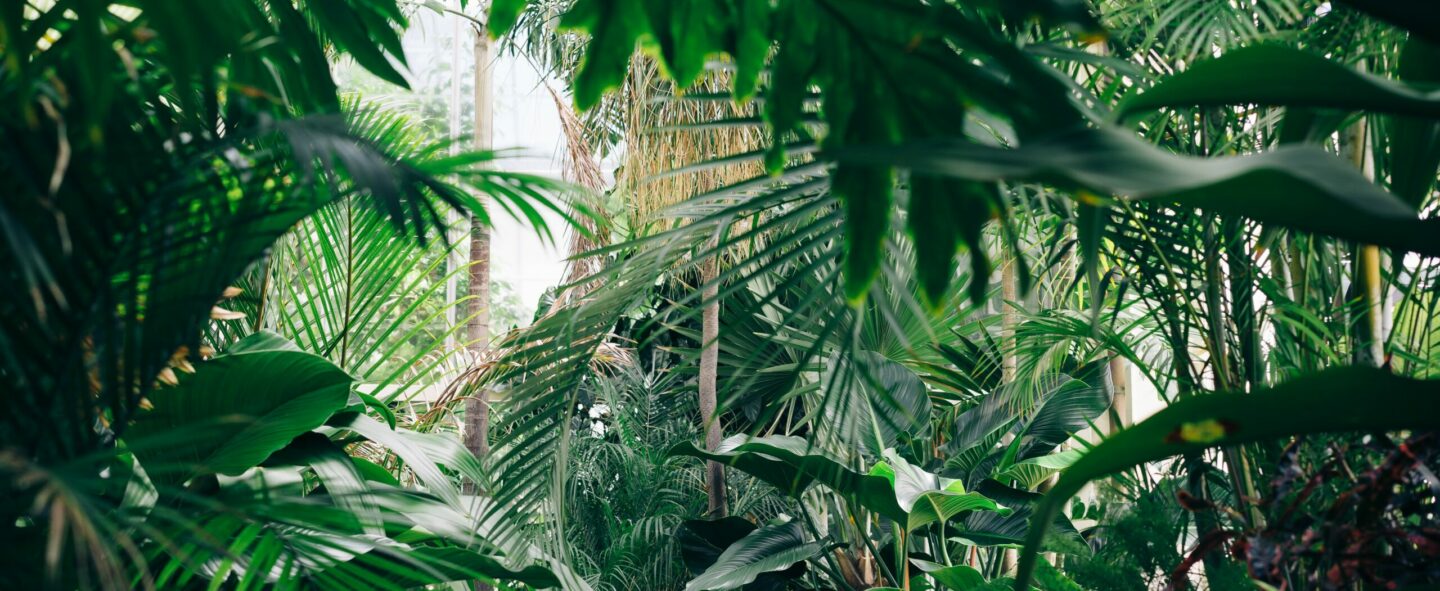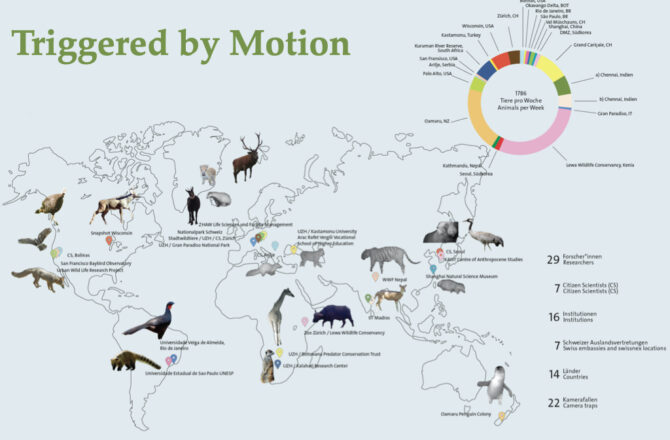
The 2020 global Living Planet Index shows an average of 68% decrease in populations of mammals, birds, amphibians, reptiles and fishes between 1970 and 2016. In the 21st century, the urban expansion, the booming global trade and consumption, as well as the increasing human population are at the cost of overusing the Earth’s biocapacity by at least 56%. In spite of the ongoing efforts, the worldwide biodiversity decline has posed severe challenges to the global ecosystem, food security, climate change and medical resources.
In September 2020, Swissnex in China was delighted to facilitate the collaboration between the University of Zurich’s “Triggered by Motion” project and the Shanghai Natural History Museum. The “Triggered by Motion” project utilizes camera traps as a relatively simple and non-invasive method to observe wildlife, which also brings the audiences closer to a field of research that’s undergoing drastic changes. As part of the collaboration, Shanghai Natural History Museum hosts one of the 20 camera traps in 14 countries, together with an international network of researchers and citizen scientists.
On the occasion of the upcoming UN Biodiversity Conference virtual meetings in October this year, Cafés des Science invites you to join this special edition with Dilsad Dagtekin, PhD student at the Department of Evolutionary Biology and Environmental Studies, University of Zurich (UZH), and Dr. Bicheng Li, Deputy Researcher at Shanghai Natural History Museum, to learn about fruitful progress of the “Triggered by Motion” project over the past year, and to discuss optimized solutions in wildlife management.
First, Dilsad Dagtekin will share her research on the seasonality effects on the co-occurrence of 7 different large-mammal predator-prey pairs by applying multispecies occupancy models with imperfect detection to 11 years of camera-trapping data from an area in northwestern Turkey. Then Dr. Bicheng Li will guide us, through the lens of 8,500 video clips, to have a peek at the wild animals living in Tian Ma Shan Forest Park located in the suburb of Shanghai.
Despite the urban structure setting, we are still living in an intricate and interlinked ecosystem. A balanced co-existence with wildlife can effectively ease the pressure of biodiversity loss and support us living sustainably in the long term. We believe that the informative and insightful presentations by our two speakers will take you on a surprising adventure into the wildlife.
PROGRAM
*live broadcasting via Zoom from 18:30-19:35 (China) / 12:30-13:35 (Switzerland)
18:00-18:30 Registration
18:30-18:35 / 12:30-12:35 Welcome Speech
Cissy Sun, Head of Art-Science at Swissnex in China
18:35-18:55 / 12:35-12:55 Presentation: Seasonality Effects on Large-mammal Co-occurrence Patterns
Dilsad Dagtekin, PhD Student, Department of Evolutionary Biology and Environmental Studies, University of Zurich
18:55-19:15 /12:55- 13:15 Presentation: Wild Animal Records through the Camera Traps in Shanghai
Dr. Bicheng Li, Deputy Researcher, Shanghai Natural History Museum
19:15-19:35 / 13:15- 13:35 Q&A Session
19:35-20:30 Networking Reception
Speaker
-
![]()
Bio
Bicheng Li
Deputy Researcher at Shanghai Natural History MuseumDr. Bicheng Li is a researcher at the Shanghai Natural History Museum (a branch of the Shanghai Science and Technology Museum). He is engaged in animal population ecology and conservation biology research, with a focus on the impact of urbanization on animal community structure and tiny animal populations. His research objects include birds, small and medium-sized mammals, etc. As the project leader and core member, he has undertaken over 30 scientific research projects, published more than 20 papers, authored, or participated in the compilation of “Dajinshan Island Scientific Investigation Report”, “Wetland Waterfowl in China”, and other seven monographs. He was awarded the 7th Wildlife Guardian in 2020.
-
![]()
Bio
Dilsad Dagtekin
PhD Student, Department of Evolutionary Biology and Environmental Studies, University of ZurichWith the aim of contributing to conservation, Dilsad Dagtekin is dedicated to investigating population demographics, abundance, and distribution of wildlife populations. She is carrying out her research at UZH with a focus on seasonality effects on wildlife populations in Turkey, in terms of how seasonal fluctuations affect different populations, and how can we incorporate these into conservation and management plans. Tackling different types of spatially-explicit hierarchical models can shed light on the above questions.
Currently, she is working on three different data sets from three different populations – large-mammal populations in Northwestern Turkey, gray mouse lemur population (Microcebus murinus) in Kirindy Forest, Madagascar, and Aldabra giant tortoise population (Aldabrachelys gigantea) in Aldabra Atoll, Seychelles. These three different parts of her research allow her to incorporate three different modeling approaches with increasing complexity based on the data resolution.

The Graduate Campus of University of Zurich is developing a video installation titled “Triggered by Motion” together with an international network of researchers and citizen scientists. 20 camera traps in 14 countries are since filming the local environment and all the animals that trigger the cameras by their movement. The video installation will be shown in various exhibition contexts from 2022 and aims to foster the dialogue between science, art and the interested public. The first exhibition will happen in the context of the collaboration between the Graduate Campus and the Museum für Gestaltung in Zürich.
The project is being developed with the support of Swissnex in San Francisco, Swissnex in Brazil, Swissnex in Boston, Swissnex in China, Swissnex in India, Swiss Science & Technology Office Seoul and the Swiss Embassy in Nairobi.
CAFÉ DES SCIENCES

Café des Sciences is an event series at Swissnex in China initiated in 2019, offering a platform for Swiss spotlight scientists, start-ups, artists and designers to present their projects and connect with the local community. The lectures offer a casual setting in which speakers can present their work and engage with the attendees during a Q&A period. Audiences are welcomed to enjoy the networking reception with Swiss flavor after the talk. Starting in 2021, the lectures are scheduled to take place on the third Thursday of every other month at Swissnex in China or our partner spaces.




